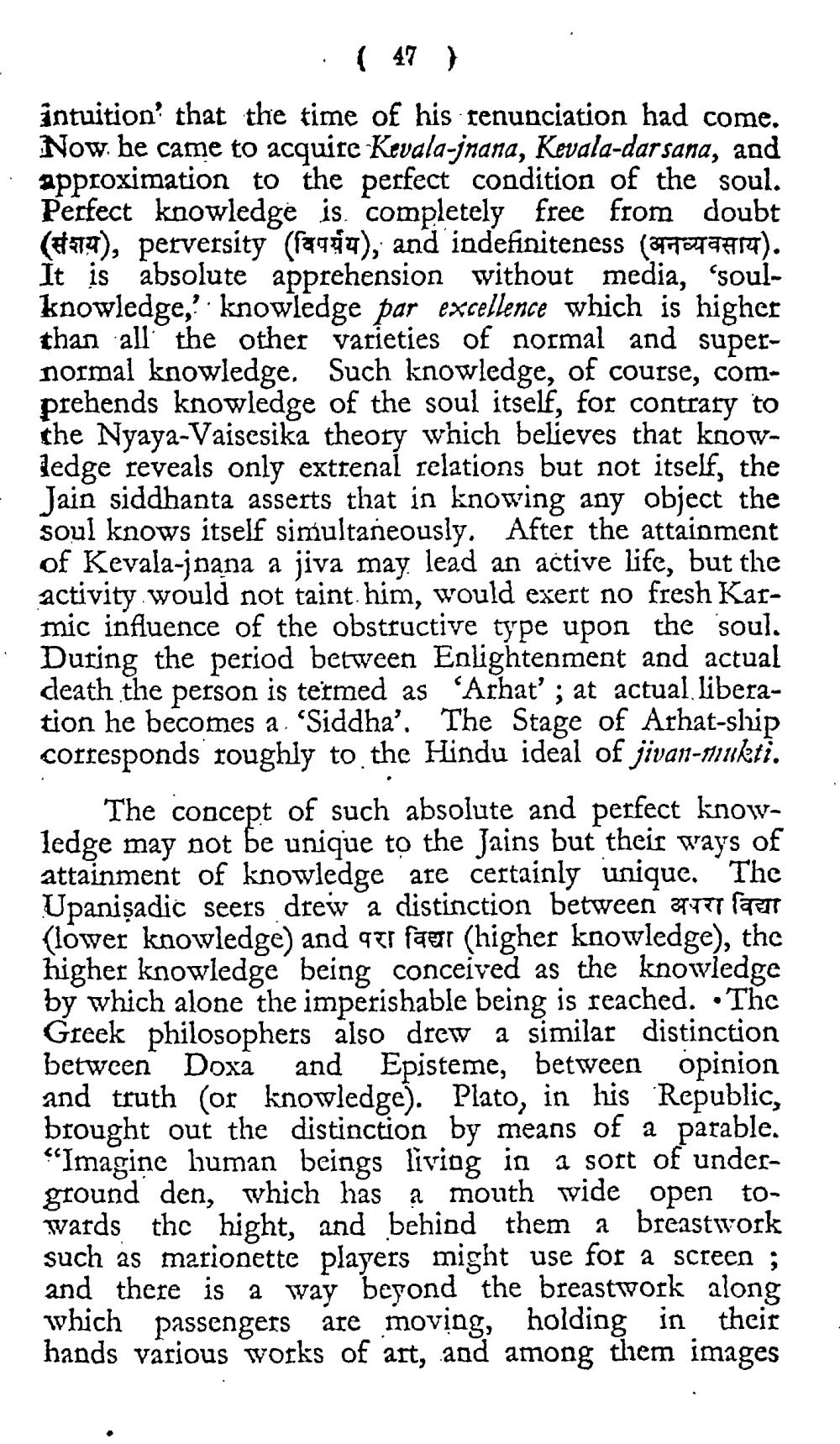________________
( 47 ) intuition that the time of his renunciation had come. Now, he came to acquire Kevala-jnana, Kevala-dar sana, and approximation to the perfect condition of the soul. Perfect knowledge is completely free from doubt (#99), perversity (Tanga), and indefiniteness (Tapah). It is absolute apprehension without media, ‘soulknowledge, knowledge par excellence which is higher than all the other varieties of normal and supernormal knowledge. Such knowledge, of course, comprehends knowledge of the soul itself, for contrary to the Nyaya-Vaisesika theory which believes that knowledge reveals only extrenal relations but not itself, the Jain siddhanta asserts that in knowing any object the soul knows itself simultaneously. After the attainment of Kevala-jnana a jiva may lead an active life, but the activity would not taint. him, would exert no fresh Karmic influence of the obstructive type upon the soul. During the period between Enlightenment and actual death the person is termed as Arhat ; at actual liberation he becomes a. 'Siddha'. The Stage of Arhat-ship corresponds roughly to the Hindu ideal of jivan-mukti.
The concept of such absolute and perfect knowledge may not be unique to the Jains but their ways of attainment of knowledge are certainly unique. The Upanişadic seers drew a distinction between 27TTEETT (lower knowledge) and qui faeri (higher knowledge), the higher knowledge being conceived as the knowledge by which alone the imperishable being is reached. The Greek philosophers also drew a similar distinction between Doxa and Episteme, between opinion and truth (or knowledge). Plato, in his Republic, brought out the distinction by means of a parable. “Imagine human beings liviog in a sort of underground den, which has a mouth wide open towards the hight, and behind them a breastwork such as marionette players might use for a screen ; and there is a way beyond the breastwork along which passengers are moving, holding in their hands various works of art, and among them images




